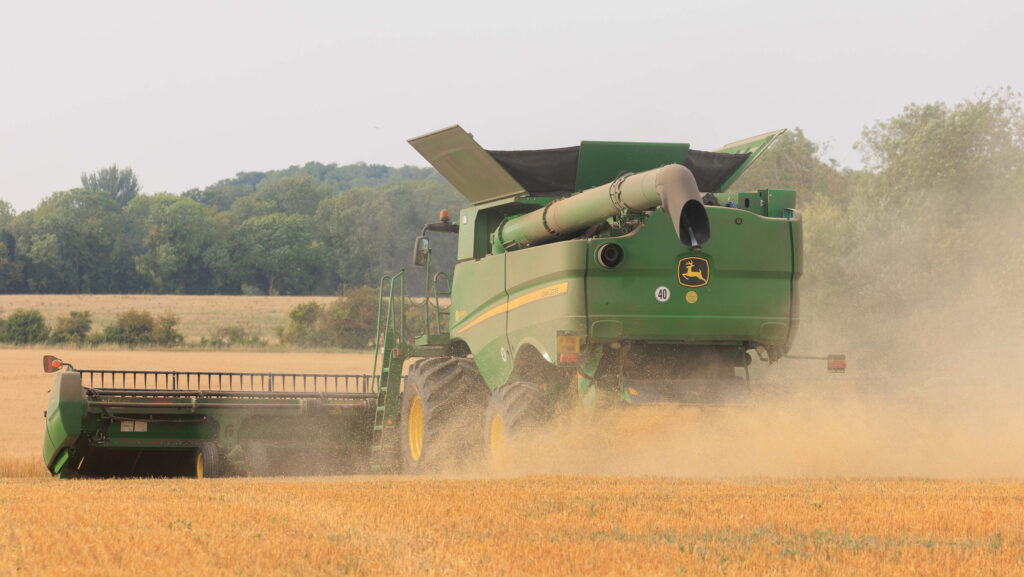Hottest summer pushes UK farmers to brink
 © Tim Scrivener
© Tim Scrivener UK farmers are facing one of their toughest years yet, after the Met Office confirmed summer 2025 as the hottest since records began in 1884, with a mean temperature of 16.1°C – surpassing the previous high set in 2018.
The record-breaking heat, combined with England’s driest spring in more than a century, has pushed many farms to breaking point.
Cereal crop yields have plummeted, pasture growth has collapsed, and livestock are under severe pressure due to dwindling forage and rising heat stress. Farmers have reported cereal and potato losses of up to 50%, with harvests arriving two to three weeks early in some regions.
See also: Drought brings maize harvest forward three weeks
Grass growth has dropped by as much as 80%, forcing many livestock producers to dip into winter feed stores or buy in expensive alternatives. Heat stress among animals, field fires and restricted irrigation have further compounded the crisis.
Colin Rayner, a mixed farmer based in Horton, Berkshire, described this year’s harvest as “disastrous”.
“My family has farmed in the Thames Valley since 1551 and I’m now questioning whether we can grow wheat, barley, maize or oilseed rape here,” he said.
“For 10 years, we have had extreme weather and we cannot just keep planting crops, hoping that we will have a normal season. It’s terrifying.”
Mr Rayner added that he was “thankful” to have put half his farm into Defra’s Sustainable Farming Incentive this year, securing fixed payments amid crop failures and market volatility.
“We usually grow 300-400 acres (120-160ha) of maize, but it’s been terrible – just 3ft high in places. Some farmers harvested their maize in late August, a month early. I feel sorry for those who invested in expensive forage kit.”
Huge harvest variability
NFU Combinable Crops Board chairman Jamie Burrows said harvest 2025 had been extremely variable, with some growers in Wales recording their best ever performance, while for many others it had been “pretty dire”.
“It’s typical farmer mindset to say, ‘let’s just get through this season and try again next year’. But more and more, I’m hearing people say they’re heading into autumn with an exit strategy,” he said.
“It’s hard to make the case for support with your bank when your yields are down over 40%, but AHDB figures show the national wheat average down just 1% – even though that’s now been revised to 3%.”
Tom Lancaster, land, food and farming analyst at the Energy and Climate Intelligence Unit (ECIU), said harvest 2025 was “once again heading for near-record low” yields, and rising food prices.
“This isn’t just weather, it is the impact of climate change in real time,” he said.
